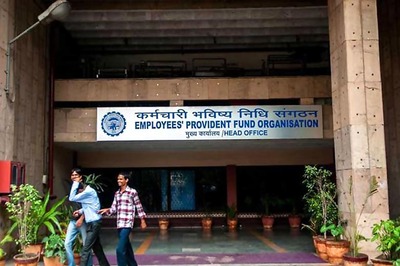
views
47% of women make financial decisions on their own, reflecting the momentum in financial independence. 65% of women aged over 45 years make financial decisions independently compared with 41% aged 25-35 years, said a new study.
DBS Bank India, in partnership with CRISIL, has undertaken a comprehensive study entitled ‘Women and Finance’. The first of three reports was launched today, based on the survey that was designed to reveal the financial preferences of women, both salaried and self-employed, across various life stages.
Also Read: From Lower Wages To Safety: Report Reveals Unjust Life Of Women In Blue-Collar Jobs
According to the report, working women in India tend to be risk-averse. About 51% of their investments are parked in fixed deposits and savings accounts, followed by 16% in gold, 15% in mutual funds, 10% in real estate and only 7% in stocks.
Over 800 women were surveyed across 10 cities in India on a wide range of behaviours, including their involvement in financial decision-making, goal setting, saving and investing patterns and adoption of digital tools as well as their preferences for different banking products.
Key findings of the survey;
Decision-making dynamics and evolution of goals
Whether it’s charting out their children’s educational paths or balancing multiple, competing financial goals, women are not bystanders, but are at the helm, shaping the future of their families.
98% of salaried and self-employed Indian women actively participate in long-term family decision-making. The findings revealed that about 47% of them make independent financial decisions, a reflection of women’s growing financial autonomy.
Age and affluence play a pivotal role in shaping these decisions. Women over 45 years old, with their wealth of experience, emerge as the leaders, with 65% making independent financial choices compared to 41% of those aged 25-35 years.
The report provides a glimpse into the growing empowerment of earning, metropolitan women.
Across India, a woman’s primary long-term financial priority evolves with age. Buying/upgrading a home is priority number one for those between 25-35 years, while it evolves to children’s education for those in the 35-45 year category and to medical care for those above 45 years of age.
Expectedly, retirement planning is seen entering the consideration set for the first time in the 35-45 year age cohort.
Prashant Joshi, MD and head of consumer banking group, DBS Bank India, said, “The insights from the survey highlight the importance of financial stability in the aspirations of independent female earners across India. Ownership of financial decision making, diverse investment and borrowing choices and growing adoption of digital channels are all evidence that the modern Indian woman is not just a participant, but a planner of her journey.”
Saving, borrowing and investment behaviour
Women earners in the metros tend to be risk-averse with 51% of their investments parked in fixed deposits (FD) and savings accounts, followed by 16% in gold, 15% in mutual funds, 10% in real estate and just 7% in stocks. This tracks behaviours from DBS Bank India’s customer insights where 10% of female customers have an active fixed deposit, while just 5% of male customers have opened an FD.
The presence of dependents understandably plays a major role in women’s investment behaviour. Specifically, 43% of married women with dependents conservatively allocate 10-29% of their income to investing, while in contrast, a quarter of married women without dependents choose to invest over half of their income.
Regional variations lend greater depth to the insights. For example, Hyderabad and Mumbai lead the way in credit card usage, with 96% of women in Mumbai relying on credit cards, while only 63% of women in Kolkata use them.
Loan For Home
The report revealed that half of the salaried women stated that they had never taken a loan. Among those who have borrowed, the majority opted for a home loan, which reflects the deep cultural importance associated with homeownership in India.
UPI
The study also deep-dived into women’s usage of different banking and payment channels. 33% of those in the 25-35 age bracket prefer to use UPI for online shopping, while only 22% above 45 years use UPI.
The report showed that UPI stands out as the preferred choice for urban women for a variety of payment needs: money transfers (38%), utility bills (34%) and e-commerce purchases (29%), signalling decreasing dependence on cash.
Although regional nuances were stark in some cases with only 2% of women in Delhi opting for cash payments, 43% of women from Kolkata favoured this option.


















Comments
0 comment